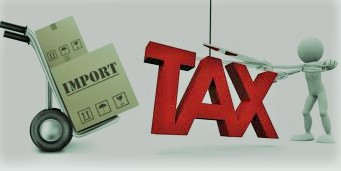Ghana’s government has decided to suspend basic requirements for tax exemption holders which enabled them to provisionally pay import duties and taxes upfront and subsequently, apply for a refund.
Government in March this year during its 2017 budget presentation, announced the removal of import duty as well as other taxes which it considered to be harmful to smooth business operations at the ports.
However, in an encounter with the media, a Deputy Finance Minister - Kwaku Kwarteng noted that henceforth, importers will benefit from exemptions beginning October 1, 2017 after fulfilling all the requirements.
Defending the new decision by government, Mr. Kwarteng claimed that the suspended system that required importers to pay upfront and apply for refund later, placed additional financial burden on the businesses.
He stated that in the government’s consultation “we have better understood the weaknesses in our exemptions regime. We are in a better position to deal with the shortcomings in ways that pose less cost to genuine businesses and exemption holdersâ€.
More so, he claimed that government has been able to identify abuses in the exemption regime as far back as April, 2017 when the policy came into effect.
“For instance in the first eight months of 2016, total import duty was GHS5.9 billion and total exemptions granted was GHS1.7 billion. As such tax exemptions represented 30 percent of total import duty and taxesâ€, he said.
Mr. Kwarteng also provided facts on some progress made during the first eight months of the year – 2017(under review) in the import /export sector by stating that: total import duty collected increased to GHS7.2 billion, while total exemptions granted reduced to GHS1.2 billion which is 17 percent of total import duty and taxes for the same period.
Highlighting some conditions under the new system, he said importers will be required to provide documentation such as: the basis for the exemption, recommendation letter from relevant sector ministry or agency, Customs Classification and Valuation Report (CCVR) or customs Declaration form as well as, an import declaration form.
Other documents will include, tax clearance certificate, bill of laden, commercial invoices, packing list, tax exemption assessment report, among others.





